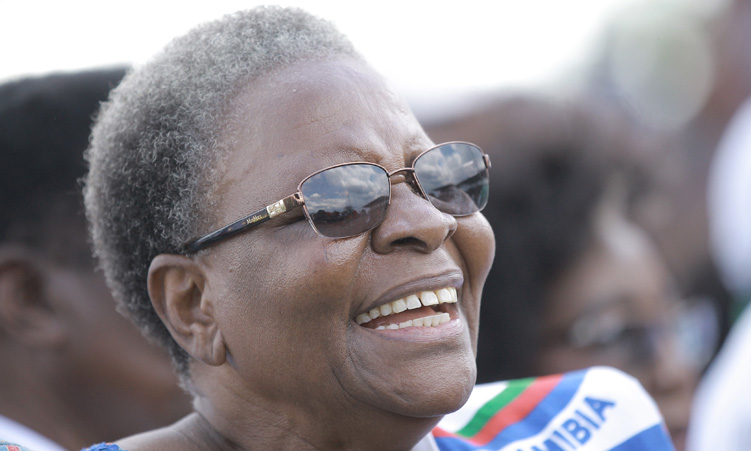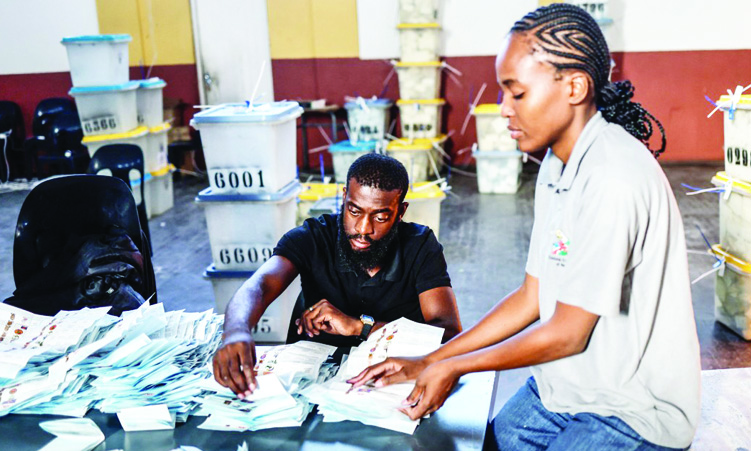DANIEL KALISEVERAL WEEKS ago, it was reported in the media that the City Police arrested Ms Martha Goses for child neglect. She apparently left her five minor children to fend for themselves. In a separate case, the media reported about how Ms Isa Alfred abandoned her children and homestead, because, as she explains, “I was tired of the poverty and struggle…”
While Namibia continues to rake in international accolades for efforts on gender-equal political representation, these two cases expose a sad tale of Namibian society that is morally reprehensible. The rampant practice of absentee fathers continues to cause unprecedented hardship and poverty across the country. It is hard to find a bigger contributor to Namibia’s gender poverty gap than the disproportionate burden placed on women to care, singularly, for children.
Efforts for fair gender representation in politics and in corporate structures are commendable. However, these remain measly interventions in the struggle to emancipate women from the shackles of poverty. Meaningful steps in the emancipation of our mothers, sisters and daughters in Namibia require a collective rejection of the phenomenon of absentee fathers, in all its manifestations. There is hardly a Namibian household that is not beset by this social evil. The culprits are everyday members of society: politicians, lawmakers, businessmen, professionals, unskilled workers, and unemployed men.
In a world of equality for all, there should have been flashing news headlines that the police are earnestly trying to find the father or fathers of Martha and Isa’s children. Where are they? Why are Martha and Isa made to suffer that humiliation on their own?
The phenomenon of absent fathers manifests in varying degrees of evil. In some instances, men simply abandon the children. Other men hold decent jobs, and believe that a monthly monetary contribution towards the upkeep of the child or children is enough. Others start ‘proper’ families with a new wife, and the children from the new wife are pampered and spoiled, as if the men are possessed. It is brutal enough that men have children and do not support or even acknowledge them. However, when men have the material means, yet unashamedly spend discriminatorily on their children, depending on where the mothers of the children are in his life, makes this despicable phenomenon of absent fathers so much more profound.
The one elementary remedy available for women in Namibia is to approach the maintenance court, and obtain a judgement against the father. The court will make a determination on a financial maintenance amount that is payable by the father. That is, if the father is employed. Social services and other judicial structures do their best to support women. However, all legal efforts have not even begun to scratch the surface of the full impact of the injustice done to children not supported by their fathers.
Single mothers will attest that the prescribed minimum ordered by the maintenance courts remains inadequate. Extended families, including pensioner grandparents, are left to carry the shortfall, further expending the slippery slope of poverty.
All children deserve a father and mother who together acknowledge their existence, and show love and care in equal abundance. In a country that is one of the most unequal in the world, there can be no greater violation and cruelty to a child than denying a child the most basic privilege, to say…”Mom and Dad.”
In basic problem-solving, it is required that one starts with examining the root causes of the problem. The root cause of Namibia’s desperate and regressing poverty levels is attributable to the structure of our society. Overlaying this is the awful history of racial segregation. However, the prevalence of absent fathers exacerbates our poverty levels, and entrenches widening gaps of inequality.
As Namibians, we are comfortable with the classification previously disadvantaged Namibians when it is commercially and politically appropriate. In speaking truth to fellow Namibians, the fact about absentee fathers and discriminatory financial support to children by fathers is largely prevalent amongst previously disadvantaged Namibians. This is particularly damning for our progress as a society, given that blacks are the very population that suffered historic economic and social discrimination. An awful combination, resulting in a society sitting on a deadly cocktail which entrenches poverty firmly and generationally.
To take concrete steps, Namibia must, immediately, name, shame, shun and reject all men who abandon their children, or do not provide fair, equal and optimal support to the best of their abilities.
Until we do that, current gender equality and child welfare efforts remain woefully inadequate to address the challenges facing women, children, and by extension, society. To progress, Namibia must break this cycle of generationally entrenched poverty perpetuated by men.
The Namibian youth of the 1960s/70s left the country to seek support to fight for freedom. The youth of the 1980s intensified the struggle for better education and freedom. The youth of the 1990s provided the first wave of Namibian black professionals. The youth of today are grappling varying socio-economic challenges. For the sake of a better tomorrow, let the youth draw a line in the sand to the cowardice and evil of absent fatherhood, and say “no more”. Every Namibian child must have a mother and a father, in equal measure.
Finally, it would be remiss not to acclaim heroic salutations to the many men, uncles, grandparents and aunts who carry the brunt of this social scourge by caring for children as if they are the fathers. You make life a little more bearable!
• Daniel Kali writes in his private capacity.
Stay informed with The Namibian – your source for credible journalism. Get in-depth reporting and opinions for
only N$85 a month. Invest in journalism, invest in democracy –
Subscribe Now!






